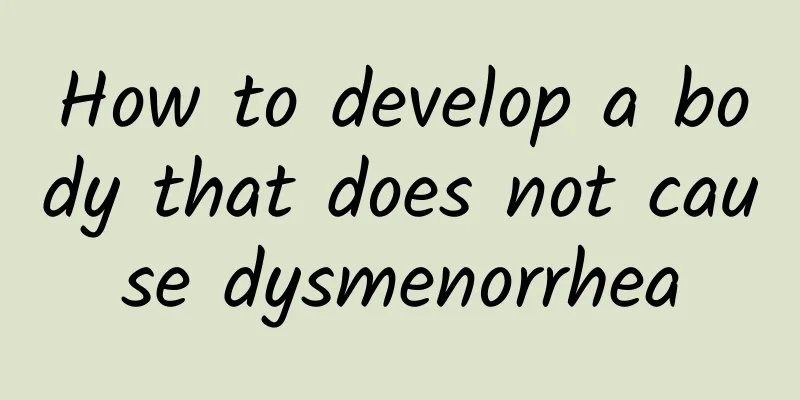What should I do if I have uterine fibroids? What are the women who are prone to uterine fibroids?

|
Uterine fibroids are a common disease in women of childbearing age. They are extremely harmful. Many women who suffer from this disease alone will have their fertility affected. So, will uterine fibroids affect pregnancy? Which women are prone to uterine fibroids? Will uterine fibroids affect pregnancy? In fact, uterine fibroids can affect pregnancy. Uterine fibroids can affect the ability to get pregnant, which is related to the location, size and number of the fibroids. 1. The fibroids grow to the surface of the uterus and protrude from the surface of the uterus. It is called a subserosal uterine fibroid and can usually be connected to the surface of the uterus through a pedicle. This type of fibroid has little effect on pregnancy and is easy to remove surgically, but when it grows to a certain size, it will affect the smooth progress of delivery. 2. The fibroids grow toward the uterine cavity and protrude into the uterine cavity, sometimes protruding from the external opening of the cervix. They can be found in the vagina. This type of fibroid is called a submucosal fibroid and causes many symptoms, such as increased menstruation, vaginal discharge, and odor. This type of fibroid can be diagnosed through vaginal examination, diagnostic curettage, hysterography, or B-ultrasound. All people diagnosed with submucosal fibroids should undergo surgical removal. In summary, uterine fibroids can seriously affect women's pregnancy, so female friends should do a good job of prevention, especially the following women: (1) Depressed women are more likely to have uterine fibroids. Middle-aged women face the dual mental pressure of work and family, which makes them prone to depression. With the arrival of menopause, women begin to enter the "estrogen control period". During this period, women's own depression can easily increase estrogen secretion and enhance its effects, which can sometimes last for several months or even years. This is also an important cause of uterine fibroids. (2) Women who have not given birth enter menopause early. Women have a limited number of primordial follicles in their lifetime, and they ovulate only once every 30 years. During pregnancy and lactation, the ovaries suspend ovulation due to hormones until the lactation period. After 6 months, the ovaries postpone ovulation for a certain number of times, and women with a history of childbearing enter menopause later. Women who have not given birth cannot protect progesterone in a timely and effective manner, and are prone to hormone-dependent diseases, one of which is uterine fibroids. |
>>: Will uterine fibroids cause infertility? What are the hazards of uterine fibroids?
Recommend
What to eat to eliminate ovarian cysts
It should be clear that no food can directly elim...
What causes postmenopausal bleeding? There are 3 reasons
If you still have bleeding after menopause, you n...
The harm of amenorrhea for many years to women
Amenorrhea for many years may cause serious harm ...
What harm will improper flow of people cause?
"What are the dangers of improper abortion?&...
How to distinguish brewed soy sauce from chemical soy sauce? Is chemical soy sauce harmful to the human body? Nutritionist's analysis
Soy sauce is a necessity in people's lives an...
What are the daily preventive measures for threatened abortion?
What are the daily preventive measures for threat...
Effective preventive measures for cervical erosion
The incidence of cervical erosion is very high in...
How to treat uterine fibroids How to treat uterine fibroids
Uterine fibroids are the most common type of tumo...
What is the reason for lower back pain when menstruation is delayed for 10 days?
What is the reason for lower back pain when menst...
Top 10 must-visit temples and must-eat temple delicacies during the Spring Festival! Nutritionist Gao Minmin reveals the calorie ranking list, this is the first
During the Chinese New Year, the most popular act...
What is the reason for irregular menstruation in an 11-year-old girl? There are 7 reasons for irregular menstruation in an 11-year-old girl.
Many women have irregular menstruation problems, ...
How to eat during fasting? Nutritionist reveals: 6 types of food that will make you thinner the more you eat
How to eat during fasting? How to eat during fast...
Drinking ginger and honey water reduces appetite? Sweating ≠ weight loss
Recently, a weight loss recipe has been circulati...
How to treat habitual miscarriage?
How to treat habitual miscarriage? Habitual misca...
What are the specific symptoms of pelvic inflammatory disease?
There are two types of pelvic inflammatory diseas...









